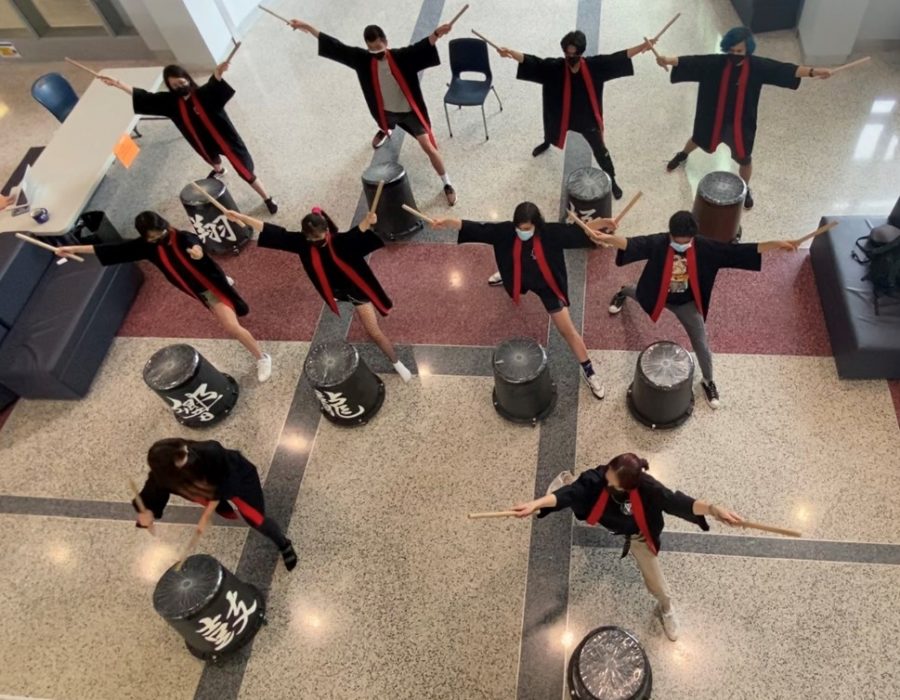J-Half-Day should be changed to a full J-Day
Japanese Culture Club members perform taiko drumming during the middle of J-day.
June 9, 2022
It’s J-Day! You and your friends have probably already made a plan for where to go, what to buy. There’s just one problem: there’s just too many booths to go visit, and some of them might sell out before you get to them.
Throughout the long-standing tradition of J-Day, the event has always been J-Half-Day, never the full J-Day as the name suggests. The full school day is around seven hours, and the regular periods take up a little more than four hours, while J-Day only lasts less than half of the day.
Currently, there is no change to this half-day practice in sight. The school has no intention to lengthen J-Day as students might get tired or grow bored of the booths, and a fun event would be turned into a boring and tiring one.
To fix this, our argument is not that all J-Day activities should run through the entire school day. After experiencing it ourselves, we understand that students would get tired of the activities if they were to last a day. However, we are proposing that half the clubs should host their events before lunch, and the other half should be present after lunch.
If this were to happen, there would be many benefits. First, students would get to thoroughly experience all of J-Day without feeling rushed. In addition, students would feel less worn out because lunch could act as a refreshing break and prepare them to be just as energetic for the new upcoming activities. This not only benefits the students attending J-Day, but also all clubs who are hoping to make a decent profit out of the day.
Splitting J-Day into two parts would give all clubs a better opportunity to earn funding for the next year as they would have less competitors and therefore more customers at the booth. This is important because good funding is highly beneficial to every club.
We understand that the J-day tradition has never been a full day, but just because a long-standing tradition has always been the way it is, does not mean that it cannot change. We should all be open to new ways and ideas, especially if the new method benefits a vast audience. After being rewarded with our first J-day experience as freshmen after a long year, we would say that it was definitely one that we will remember as the highlight of our first year at TJ.
This valuable experience is the reason why we want for the rest of J-days to be improved and better than it already is. We are not saying that our proposed idea is the way to go about it, because it is not guaranteed to work, but it is at least a start for the coming years.






